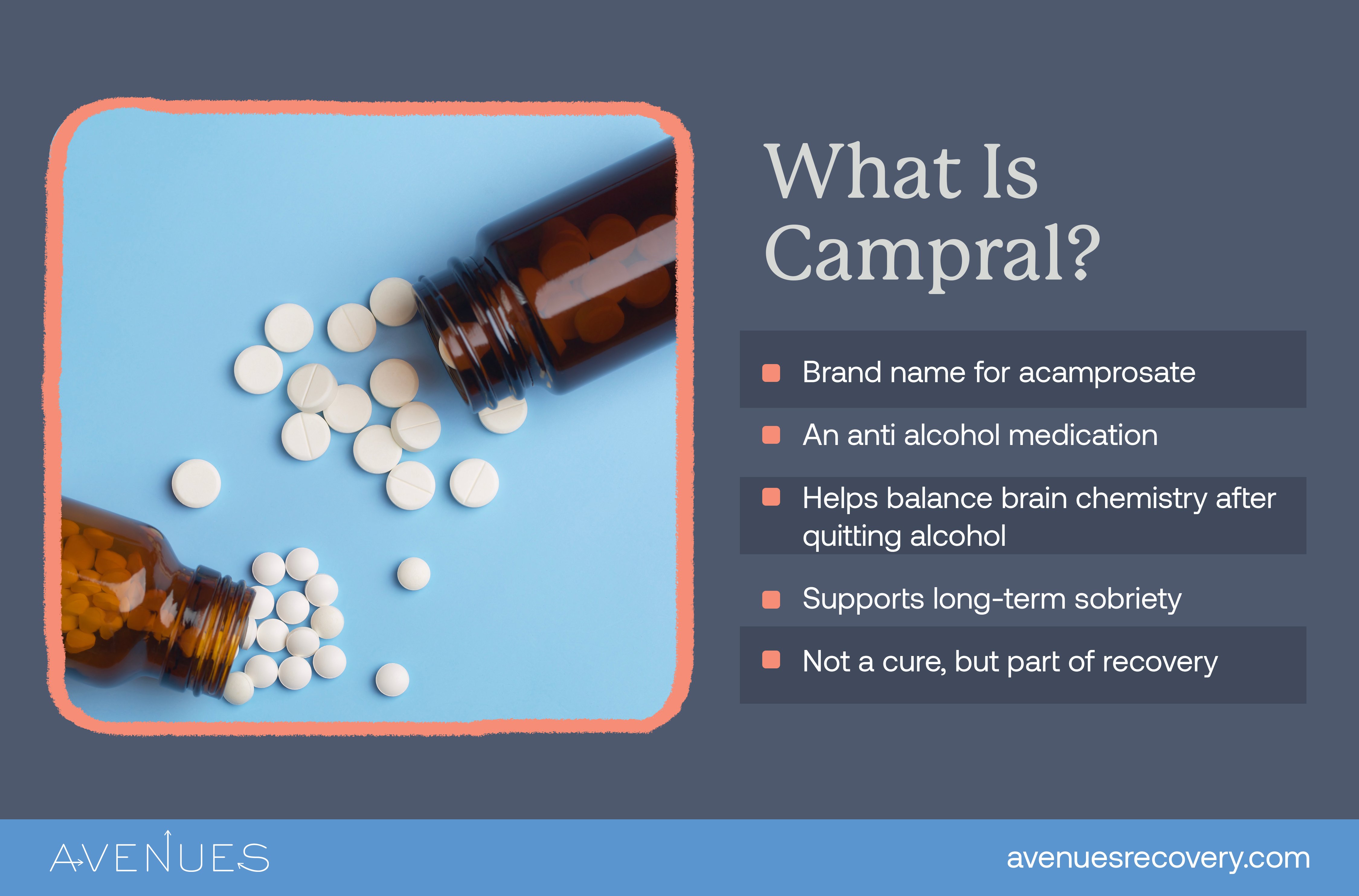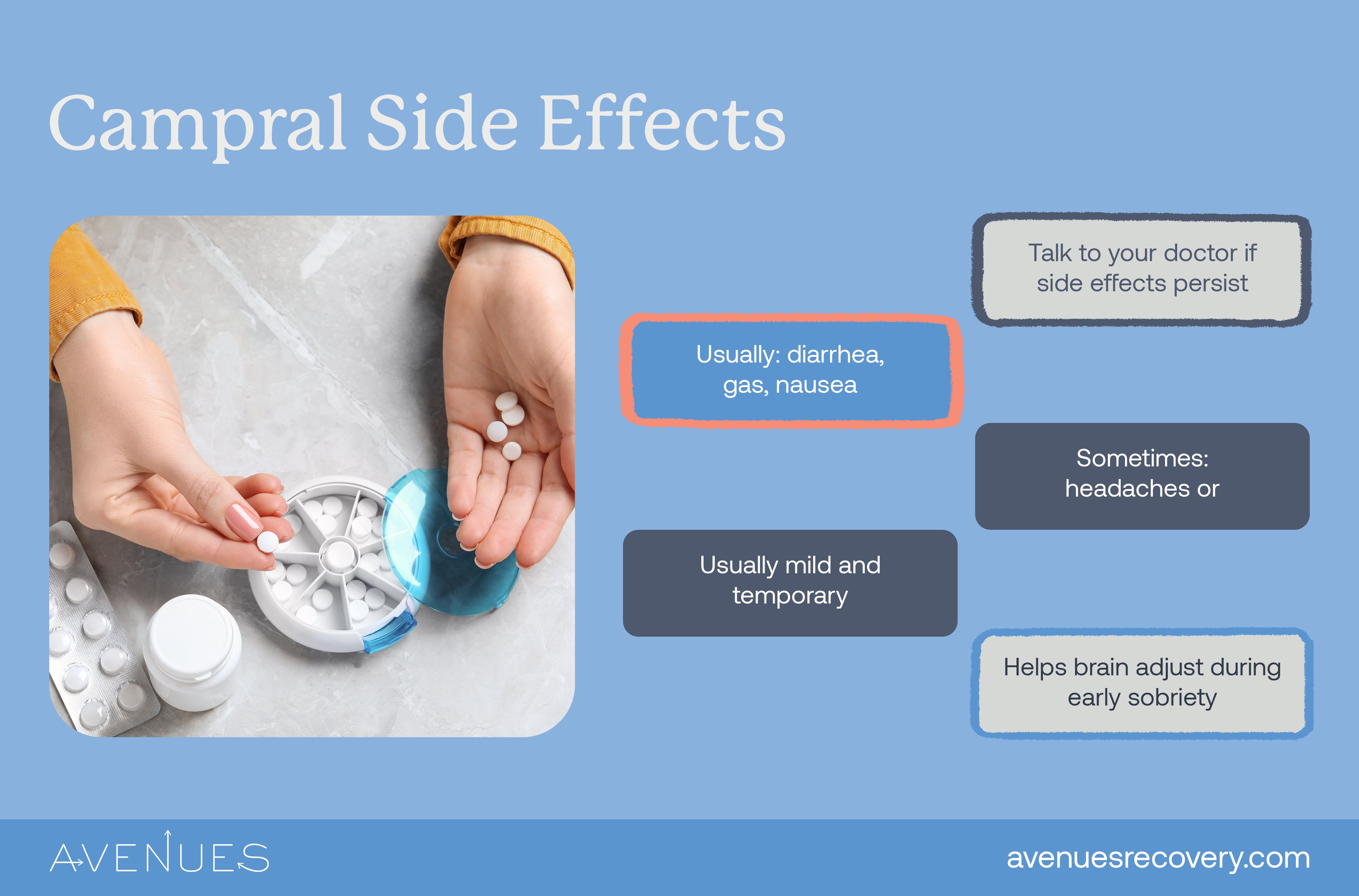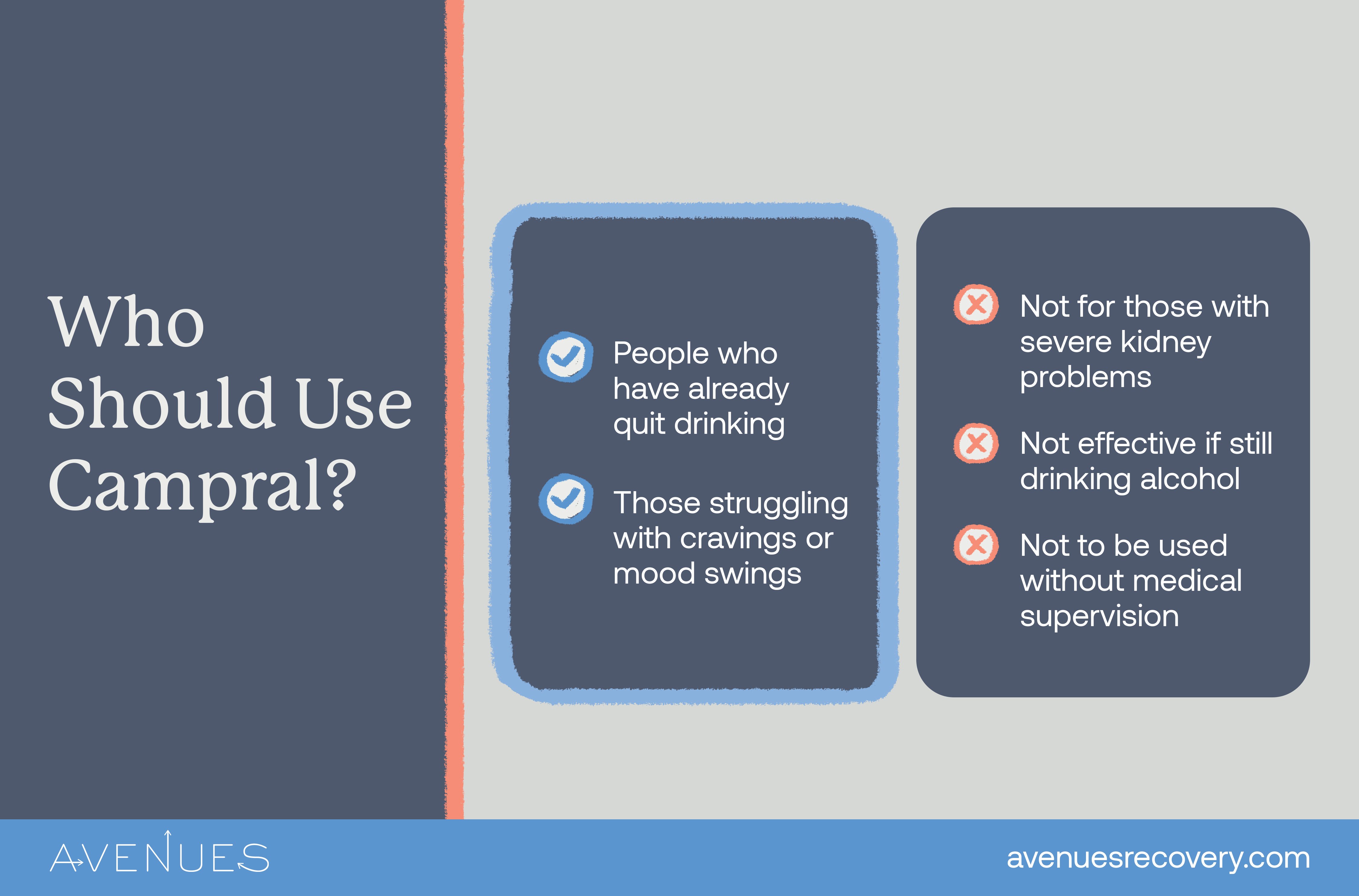Getting sober from alcohol is a major accomplishment—but staying sober can be a whole different challenge. For many people, the cravings and emotional ups and downs that follow can make it tough to stay on track.
That’s where medications like Campral (acamprosate) can help. Campral doesn’t stop withdrawal or take away cravings completely, but it works in the background to support your brain as it adjusts to life without alcohol. If you’re in recovery or supporting someone who is, it’s worth understanding what Campral does, how it helps, and what to expect along the way.
What is Campral Medication?

Campral is an anti-alcohol medication used to support people in recovery from alcohol dependence. It’s the acamprosate brand name, and it works by helping to stabilize the brain’s chemistry after someone has stopped drinking. Unlike some medications that make you sick if you drink or reduce the high, Campral’s main role is to ease the emotional and mental discomfort that often comes with early sobriety—things like anxiety, restlessness, and mood swings. It’s not a complete cure, but for many people, it can be an important part of their recovery toolkit.

Acamprosate Side Effects
Acamprosate Side Effects
Like any medication, Campral can cause side effects, especially in the first few weeks.
Common Campral side effects include:
- Digestive issues (diarrhea, gas, nausea)
- Headaches
- Dizziness
- Trouble sleeping
These effects are usually mild and fade with time. Campral works by rebalancing disrupted brain chemicals, helping the brain return to baseline after long-term alcohol use.

Acamprosate Interaction
One of the advantages of Campral is that it doesn’t interact with alcohol, which makes it different from some other medications used in recovery. But that doesn’t mean it’s completely interaction-free. Campral is processed through the kidneys—not the liver—so it’s usually safe to take alongside many other medications. However, if you have kidney problems or are taking medicines that affect kidney function, your doctor may need to adjust your dose or recommend something else. It’s always important to share a full list of everything you’re taking—including over-the-counter meds and supplements—so your care team can avoid any unwanted interactions and keep your recovery on track.
Is Campral Addictive?
No, Campral is not addictive. It doesn’t create a high, cause cravings, or lead to withdrawal symptoms if you stop taking it. Among the most important Campral uses is supporting long-term sobriety without introducing the risk of developing a new habit. It works by helping the brain gradually return to its natural balance after quitting alcohol—not by altering your mood or reinforcing dependency. If you’re worried about getting hooked on another substance, Campral is considered a safe, non-habit-forming tool in the recovery process.
Campral Dosage:

Campral Dosage
Campral usually comes in tablets. The typical dosage is:
- Two 333 mg tablets, three times daily (6 tablets total per day).
Spreading doses throughout the day maintains steady levels in the body. For those with kidney problems, dosage adjustments may be required.
Risks and Benefits of using Campral:
Like any medication, Campral comes with both risks and benefits—and understanding both sides can help you make a more informed decision. On the benefits side, Campral can make a real difference in recovery by reducing some of the emotional and mental discomfort that often comes with quitting alcohol. It helps level out mood swings, anxiety, and restlessness, which can make it easier to stay sober over time.
On the flip side, some people may experience side effects like digestive issues or sleep disturbances, and it’s not recommended for those with severe kidney problems. While Campral isn’t a cure for alcohol use disorder, it can be a helpful piece of the puzzle—especially when used alongside therapy, support groups, and other tools for long-term recovery.
Who should use Campral?
Campral is best suited for people who have already stopped drinking and are committed to staying sober. It’s not meant to help you quit drinking on its own, but rather to support your brain and body after you’ve quit. It’s often a good option for those who struggle with mood swings, anxiety, or emotional discomfort in early recovery. On the other hand, Campral isn’t recommended for people with severe kidney problems, since the medication is processed through the kidneys. It also might not be the right fit if you’re still actively drinking, as it works best once alcohol is fully out of your system. As always, the decision to use Campral should be made with a doctor or treatment team who understands your full medical history and recovery goals.

Recovery from alcohol addiction is a journey, and having the right support along the way can make all the difference. Medications like Campral can be a helpful tool to ease the challenges of staying sober, but they work best when combined with professional care, counseling, and a strong support system. At Avenues Recovery Center, we’re here to guide you through every step of your recovery, offering personalized treatment plans that fit your unique needs. If you or a loved one is ready to take the next step toward lasting sobriety, reach out to us today—because you don’t have to do this alone.


